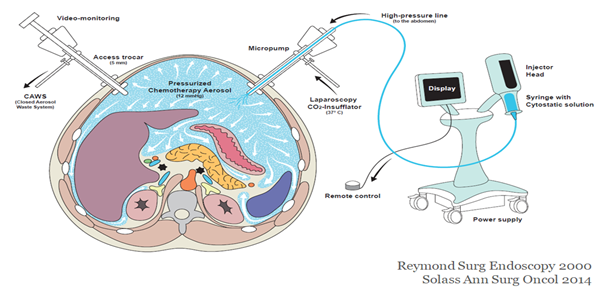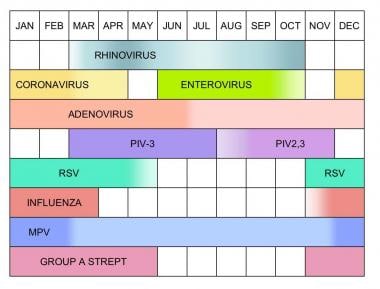

Dr Jitender Rohila, a renowned surgeon and consultant at Fortis Hospital, explains the cutting-edge surgical procedures of HIPEC and PIPAC, which are transforming the treatment of peritoneal surface cancers. These techniques involve delivering heated chemotherapy directly to the abdominal cavity or aerosol chemotherapy under pressure, resulting in improved drug absorption and reduced side effects. While HIPEC is suitable for patients who have undergone cytoreductive surgery for abdominal cancers, PIPAC offers promising options for those with advanced diseases or seeking additional treatment after surgery.
Innovations in Cancer Treatment: HIPEC and PIPAC for Peritoneal Surface Cancers
Introduction:
World Cancer Day is an annual global event held on February 4th to raise awareness and mobilize action against the disease. This year, the focus is on closing the care gap and ensuring that everyone has access to essential cancer prevention, detection, treatment, and care services.
One of the challenges in cancer treatment is addressing peritoneal surface malignancies, which are tumors that develop on the lining of the abdominal cavity. Traditional surgical approaches have limitations in removing all cancerous tissue and achieving optimal outcomes. However, recent advances in surgical techniques offer new hope for patients with these cancers.
HIPEC and PIPAC: Cutting-Edge Surgical Procedures
HIPEC (Hyperthermic Intraperitoneal Chemotherapy) and PIPAC (Pressurized Intraperitoneal Aerosol Chemotherapy) are two innovative surgical procedures that have revolutionized the treatment of peritoneal surface cancers.
HIPEC
HIPEC involves delivering heated chemotherapy directly to the abdominal cavity during cytoreductive surgery. Cytoreductive surgery aims to remove as much visible cancerous tissue as possible. HIPEC enhances its effectiveness by delivering high concentrations of chemotherapy drugs directly to the affected area. The heated chemotherapy improves drug absorption and reduces systemic side effects.
PIPAC
PIPAC is an alternative technique that uses a pressurized aerosol to deliver chemotherapy drugs to the abdominal cavity. This targeted delivery ensures optimal drug distribution and reduces the risk of systemic toxicity. PIPAC can be used as a standalone treatment or in combination with surgery or other therapies for more advanced or recurrent peritoneal surface cancers.
Benefits of HIPEC and PIPAC
Both HIPEC and PIPAC offer several benefits over traditional surgical approaches:
Who is a Candidate for HIPEC or PIPAC?
Top 5 FAQs on HIPEC and PIPAC
What are the indications for HIPEC and PIPAC? For HIPEC: patients with peritoneal surface malignancies who have undergone cytoreductive surgery. For PIPAC: patients with advanced or recurrent peritoneal surface cancers or those seeking additional treatment after surgery.
How is HIPEC performed? During cytoreductive surgery, heated chemotherapy is continuously circulated through the abdominal cavity for 60-120 minutes.
How is PIPAC performed? A pressurized aerosol is used to deliver chemotherapy drugs directly to the abdominal cavity through a small incision.
What are the potential side effects of HIPEC and PIPAC? Side effects may include fever, nausea, vomiting, fatigue, and abdominal discomfort. Severe side effects are rare.
What are the long-term outcomes of HIPEC and PIPAC? Studies have shown improved survival rates and reduced recurrence risks in patients undergoing HIPEC or PIPAC.
Conclusion:
HIPEC and PIPAC are pioneering surgical techniques that have transformed the treatment of peritoneal surface cancers. By delivering chemotherapy directly to the affected area, these procedures offer increased effectiveness and reduced side effects. As research continues, further advancements in these techniques promise to improve outcomes and enhance the quality of life for patients with peritoneal surface malignancies.

In honor of International Women's Day 2025, Google dedicated a special doodle to celebrate the contributions of women in STEM fields. Despite progress towards gender equality, women continue to remain underrepresented in STEM, making up just 29% of the global workforce. The doodle highlights the groundbreaking achievements of women in space exploration, ancient discoveries, and lab research, while also emphasizing the importance of recognizing and supporting women in STEM. This International Women's Day serves as a reminder of the countless ways in which women have shaped and continue to shape the world through their contributions to science and technology.

A new study analyzing data from prestigious institutions like Harvard and Yale challenges common perceptions about the religious makeup of American college students. Contrary to popular belief, the study found that the biggest divide in religious behavior is not between elite and non-elite institutions, but between political ideologies. The study also found that there are minimal religious differences between selective and non-selective schools, with the main exceptions being higher percentages of Christian and Jewish students at non-selective schools. This study sheds light on the complex relationship between religion and education in the United States.

This article discusses the importance of proper diet planning during the month of Ramadan for sustained energy levels and stable blood sugar levels. It highlights the need to incorporate complex carbohydrates, protein-rich foods, healthy fats, and hydrating foods into suhoor and iftar meals. Tips for breaking the fast wisely and healthy snacking options are also provided. Additionally, the article emphasizes the importance of hydration and suggests incorporating infused water options for digestion and hydration.

March 3 is observed as World Wildlife Day every year to bring attention to the importance of protecting endangered species. This year's theme, 'Wildlife Conservation Finance: Investing in People and Planet', highlights the need for sustainable measures to protect our diverse wildlife. The United Nations General Assembly declared this day in 2013, coinciding with the signing of the Convention on International Trade in Endangered Species of Wild Fauna and Flora (CITES). This international agreement, with 185 parties, aims to regulate and control the trade of endangered species to ensure their survival. Three appendices list the species under different categories based on their level of protection needed, with stricter rules for Appendix I species such as the Indian star tortoise.

India celebrates National Science Day every year on February 28 to honor the discovery of the Raman Effect by Sir C.V. Raman. The theme for this year's celebration, "Advancing Science for a Sustainable Future," highlights the role of scientific research in tackling global issues and encourages discussion on technological advancements. By promoting scientific awareness and inspiring the next generation of scientists and innovators, National Science Day strengthens India's commitment to scientific excellence and sustainable progress.

As the seasons change, our bodies are exposed to fluctuating temperatures and humidity levels that can weaken our immune systems and make us more susceptible to respiratory infections. These shifts in weather can create the ideal conditions for viruses to thrive and spread, leading to common illnesses like colds, coughs, and viral fevers. With insights from Dr Meenakshi Jain, a Senior Director of Internal Medicine, we explore how these seasonal changes affect our health and what steps we can take to protect ourselves. From boosting our immunity through diet and exercise, to practicing good hygiene and getting vaccinated, these preventative measures can help us stay healthy during seasonal transitions.

On the recent National Science Day, we commemorate the discovery of the Raman Effect and celebrate the contributions of scientists like Dr. Chandrasekhara Venkata Raman. To uphold the spirit of innovation, here are some inspiring quotes that continue to motivate scientists, students, and enthusiasts. Meanwhile in Srinagar, a cold wave and light snowfall have hit Jammu and Kashmir, reminding us of the wonders of nature.

India celebrates National Science Day on February 28 every year in honor of Sir CV Raman's groundbreaking discovery of the Raman Effect in 1928, which revolutionized the field of physics and earned him the Nobel Prize. This year, the theme is ‘Empowering Indian Youth for Global Leadership in Science & Innovation for Viksit Bharat’, highlighting the importance of science and innovation in India's development. The first National Science Day was celebrated in 1987, and since then it has become an important occasion to acknowledge the contributions of Indian scientists in various fields.

Skywatchers are in for a celestial treat this week as seven planets - Mars, Jupiter, Uranus, Venus, Neptune, Mercury, and Saturn - will be visible in the evening sky. This phenomenon, known as a 'planetary parade', will offer a rare chance to see all seven planets at once until 2040. While four planets will be visible to the naked eye, a telescope will be needed to spot the other two. With a narrow window of just a few minutes after sunset to view them, clear skies and a good vantage point on the horizon will offer the best opportunity to witness this spectacular event.

Discover the key to Finland's success in education - research. At the University of Helsinki, our researchers are leading the way in developing innovative teaching methods and policies, based on decades of multidisciplinary research into learning, growth, and human development. From teacher education to sustainability, our research is shaping the future of education for all ages. Join us in our mission to create an equal and sustainable education system through fearless innovation and collaboration.